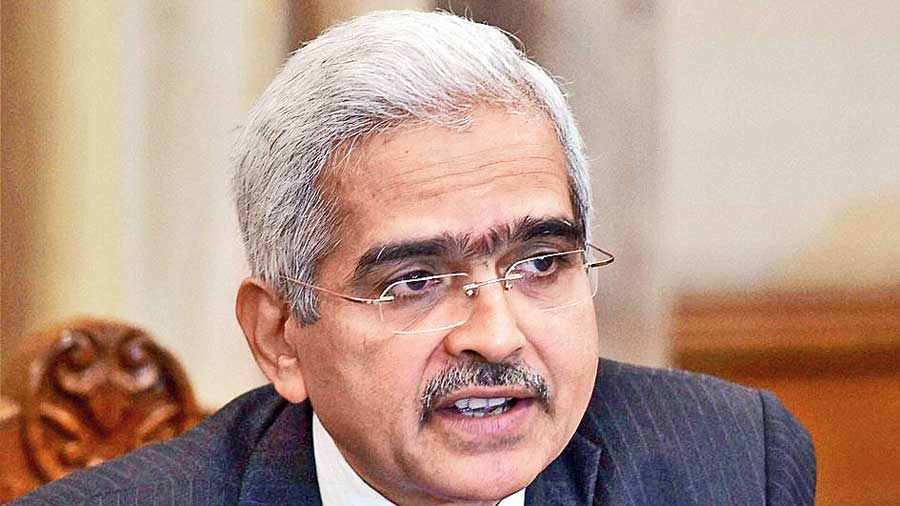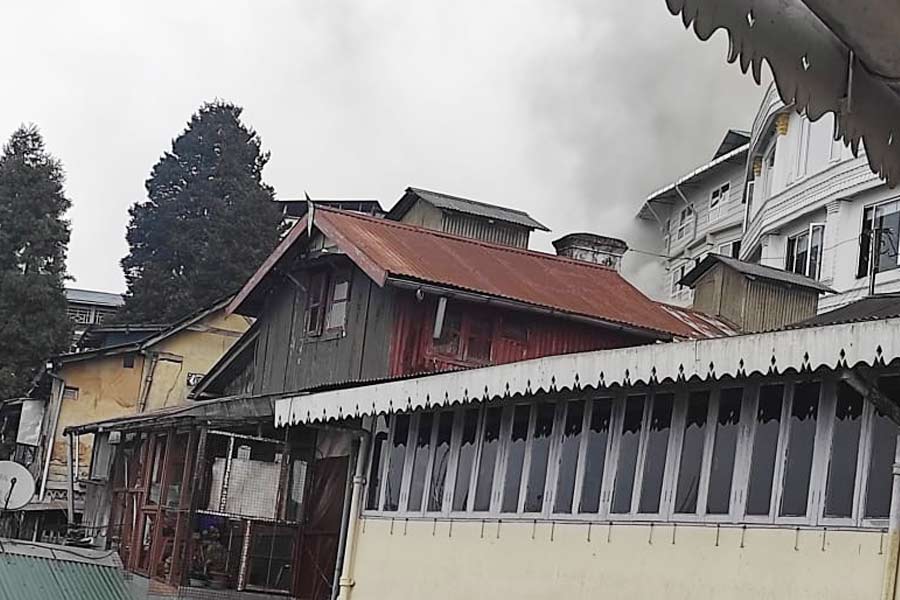Banks can hit the ground running on the debt resolution of accounts mauled by the Covid-19 pandemic without waiting either for the end of the existing loan moratorium on August 31 or for the K.V. Kamath panel to give its recommendations by the deadline of September 6, RBI governor Shaktikanta Das said on Friday.
Bank boards will decide by the end of this month on their eligibility criteria to decide which borrowers — retail and business — will qualify for resolution.
Banks can pick and choose these borrowers based on their internal assessments and the broad criteria remains: that the account should have been recognised as a standard account on March 1 this year. The RBI had announced the new debt resolution norm earlier this month.
The banks can provide a debt resolution tenure of up to two years and decide whether or not to extend a moratorium of three, six or 12 months.
The Kamath committee will only deal with a certain class of business borrowers, having fund and non-fund exposure of over Rs 1,500 crore to the banking sector. It will decide on financial parameters only such as the debt service coverage ratio, the acceptable debt-equity ratio, and interest coverage ratio relating to a resolution scheme.
The entire process of submitting the report and the issue of the RBI’s notification will be completed in 30 days, which is September 6. Pre-Covid stressed accounts will need to be resolved under the RBI circular issued under June 7, 2019
Das told a TV channel that the six-month loan moratorium that ends this month was only a temporary relief and the one-time restructuring mechanism which replaces it would help revive several units that are under stress because of the pandemic.
Das said the new mechanism was drafted after lot of thought and the central bank considered both the health of the banks and the difficult conditions faced by individual and business borrowers. He pointed out that if nothing was done, bad loans would spike which will have an adverse impact on financial stability.
The RBI governor reiterated the latest resolution framework was only for Covid-19 related stress. “The moratorium was a temporary response to the lockdown.. but we need to find a durable solution where the retail and business loans are resolved,” he said.
Policy-making
Das said three new members will join the rate-setting monetary policy committee to replace three external members whose tenures have come to an end.
An RBI panel will internally review how inflation-anchored policymaking mandate has worked. It will also review the need to widen the inflation targets using CPI (consumer price index), core CPI and WPI (wholesale price index). At present, it is entirely dependent on CPI combined with a mid-point of 4 per cent with a tolerance level of 2 per cent on either side. Das disclosed that such a review of the target will be done by the government. Under the 45ZA of the RBI Act, the government can reset the mandate every five years.
The monetary policy panel arrived at a status quo on rates earlier this month on August 6 after considering numerous factors such as retail inflation, growth, food inflation, core inflation, wholesale prices and supply chain cost.
Onus on Centre
The Reserve Bank is at the end of its rate cutting cycle as inflation is unlikely to decline materially from the current level, and the onus of economic recovery has now shifted to the government, economists at SBI said on Friday.
“Fiscal policy should play a decisive role, if we have to nurture any hopes of a fast-paced recovery,” the economists at SBI said.
“We now believe that we are at the end of the rate cut cycle and expectations of large cuts must be anchored as inflation is unlikely to decline materially from current level,” the SBI economists said.
They said large procurement by government could further push inflation up by 35-40 basis points.











